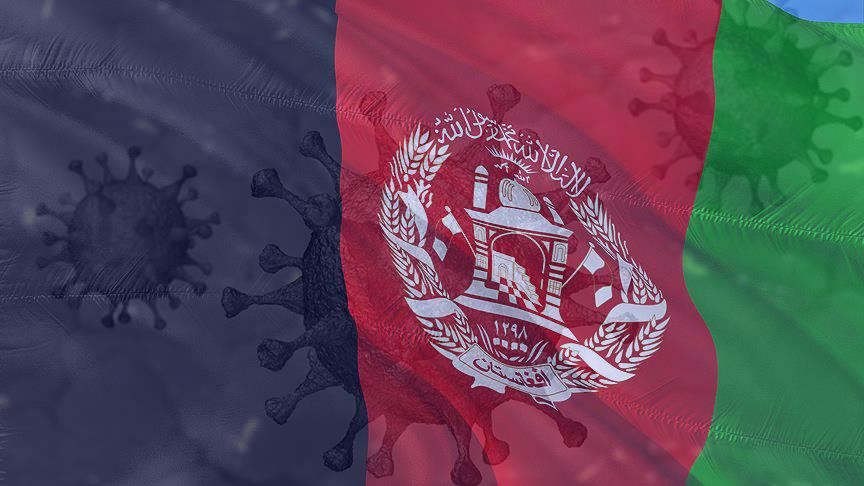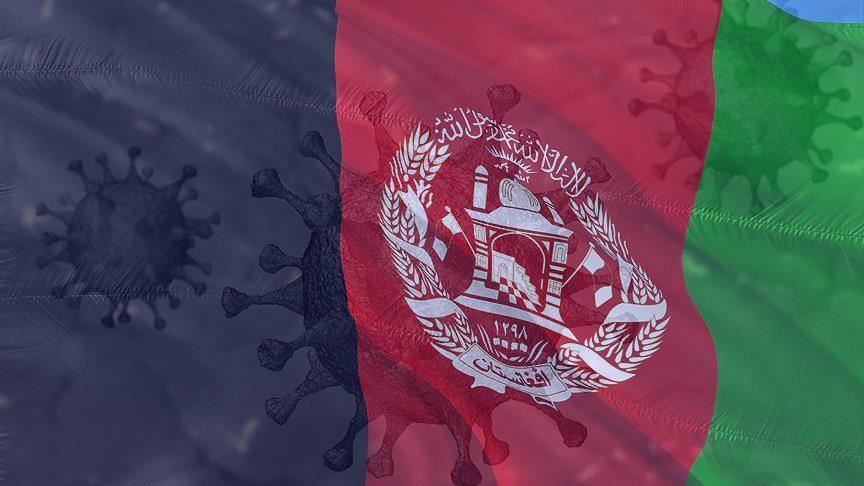Experts believe COVID-19 cases immensely underreported due to lack of resources, non-compliance with preventive measures
Publish dateSunday 5 April 2020 - 08:29
Story Code : 206946
Much needed aid kept Afghanistan’s fragile health system afloat in the wake of the crippling coronavirus pandemic amid raging insurgency and lingering political tensions.
As a freight train carrying 500 tons of food aid from neighboring Uzbekistan docked in northern Afghanistan on Friday, official figures on virus patients by the health ministry indicated the pandemic was making inroads in the landlocked country’s capital of Kabul.
Dr. Waheedullah Mayar, an adviser on strategic affairs at the Health Ministry, told Anadolu Agency that COVID-19 has now entered the critical epidemic phase in Kabul by infecting citizens with no track record of travel to epicenters such as Iran, Italy or China.
"We are more vulnerable than many other nations on the planet due to numerous factors such as the socio-economic and political instability and insecurity," he said.
A day before Uzbekistan’s "Train of Generosity" brought flour, rice and basic needs to Afghanistan, a Chinese aerial consignment brought much-needed medical supplies to Kabul, including ventilators, COVID-19 testing kits and masks for frontline health workers.
The World Bank pitched in with a $100.4 million fast-tracked grant for Afghanistan as it fights the pandemic.
Data compiled by the U.S.’ Johns Hopkins University shows there are 299 active infections in Afghanistan as 6 had died and 10 have recovered.
Flagship endeavors in uphill battle
Health experts believe the relatively low figures are indicative of the fragile health system’s limitations in terms of testing for suspected cases amid the daily steady inflow of thousands of migrants from Iran.
Former director of public health Kabir Saifi said the actual numbers could be much higher.
"Firstly, there are no resources and expertise to deal with a challenge at this level. Secondly, there are still doubts, concerns and non-seriousness among the masses towards the preventive measures, which is resulting in underreporting," he told Anadolu Agency.
With meager resources, the government is working around the clock on a 100-bed field hospital dedicated to coronavirus patients with an ambitious goal to have it completed in three weeks.
Fearing another spillover of COVID-19 patients, this time on the eastern border with Pakistan where the main Torkham crossing point remains closed with thousands of stranded on both sides, the government has already set-up a quarantine camp.
According to the administration in Nangarhar province bordering Pakistan, all suspected individuals will be kept at the isolation center for at least two weeks.
There are 2.8 million documented and undocumented Afghan refugees living in Pakistan, who can be deported anytime.
Cut in aid, a wake-up call
As per the latest Asian Development Bank figures, with the expected decline in international aid and domestically collected revenue covering 51% of government expenditure, accelerating domestic revenue mobilization remains one of the most pressing policy challenges facing Afghanistan.
At this crucial moment in time, Afghanistan lost $1 billion worth of U.S. funds due to an electoral rift between President Mohammad Ashraf Ghani and rival, the self-proclaimed president of the "inclusive government" Abdullah Abdullah, following a trip to Kabul by U.S. Secretary of State Mike Pompeo.
Downplaying the effects in a televised address, Ghani thanked the U.S. for granting a separate $15 million in aid to fight the spread of COVID-19.
On the political impasse in the country, Ghani said Abdullah has been offered a key role in spearheading the peace process and Cabinet positions to party members.
"But, he wanted change in the constitution, and overnight -- an authority I don’t have," he said.
In a separate message, Abdullah lamented the trip to Kabul by the top U.S. diplomat was not properly utilized to end the rift.
"Mr. Pompeo delivered the U.S. government’s message for the serious need to resolve the crisis through political leaders of the country and asserted for urgency on this matter," he said.
Alarmed about the loss of funds, economist Muhib Sharif said Afghan politicians should take it as a wake up call.
"Only the government’s armed opponents [the Taliban] and enemies of the country are going to exploit the rift and differences among politicians," he said.
As a freight train carrying 500 tons of food aid from neighboring Uzbekistan docked in northern Afghanistan on Friday, official figures on virus patients by the health ministry indicated the pandemic was making inroads in the landlocked country’s capital of Kabul.
Dr. Waheedullah Mayar, an adviser on strategic affairs at the Health Ministry, told Anadolu Agency that COVID-19 has now entered the critical epidemic phase in Kabul by infecting citizens with no track record of travel to epicenters such as Iran, Italy or China.
"We are more vulnerable than many other nations on the planet due to numerous factors such as the socio-economic and political instability and insecurity," he said.
A day before Uzbekistan’s "Train of Generosity" brought flour, rice and basic needs to Afghanistan, a Chinese aerial consignment brought much-needed medical supplies to Kabul, including ventilators, COVID-19 testing kits and masks for frontline health workers.
The World Bank pitched in with a $100.4 million fast-tracked grant for Afghanistan as it fights the pandemic.
Data compiled by the U.S.’ Johns Hopkins University shows there are 299 active infections in Afghanistan as 6 had died and 10 have recovered.
Flagship endeavors in uphill battle
Health experts believe the relatively low figures are indicative of the fragile health system’s limitations in terms of testing for suspected cases amid the daily steady inflow of thousands of migrants from Iran.
Former director of public health Kabir Saifi said the actual numbers could be much higher.
"Firstly, there are no resources and expertise to deal with a challenge at this level. Secondly, there are still doubts, concerns and non-seriousness among the masses towards the preventive measures, which is resulting in underreporting," he told Anadolu Agency.
With meager resources, the government is working around the clock on a 100-bed field hospital dedicated to coronavirus patients with an ambitious goal to have it completed in three weeks.
Fearing another spillover of COVID-19 patients, this time on the eastern border with Pakistan where the main Torkham crossing point remains closed with thousands of stranded on both sides, the government has already set-up a quarantine camp.
According to the administration in Nangarhar province bordering Pakistan, all suspected individuals will be kept at the isolation center for at least two weeks.
There are 2.8 million documented and undocumented Afghan refugees living in Pakistan, who can be deported anytime.
Cut in aid, a wake-up call
As per the latest Asian Development Bank figures, with the expected decline in international aid and domestically collected revenue covering 51% of government expenditure, accelerating domestic revenue mobilization remains one of the most pressing policy challenges facing Afghanistan.
At this crucial moment in time, Afghanistan lost $1 billion worth of U.S. funds due to an electoral rift between President Mohammad Ashraf Ghani and rival, the self-proclaimed president of the "inclusive government" Abdullah Abdullah, following a trip to Kabul by U.S. Secretary of State Mike Pompeo.
Downplaying the effects in a televised address, Ghani thanked the U.S. for granting a separate $15 million in aid to fight the spread of COVID-19.
On the political impasse in the country, Ghani said Abdullah has been offered a key role in spearheading the peace process and Cabinet positions to party members.
"But, he wanted change in the constitution, and overnight -- an authority I don’t have," he said.
In a separate message, Abdullah lamented the trip to Kabul by the top U.S. diplomat was not properly utilized to end the rift.
"Mr. Pompeo delivered the U.S. government’s message for the serious need to resolve the crisis through political leaders of the country and asserted for urgency on this matter," he said.
Alarmed about the loss of funds, economist Muhib Sharif said Afghan politicians should take it as a wake up call.
"Only the government’s armed opponents [the Taliban] and enemies of the country are going to exploit the rift and differences among politicians," he said.
avapress.net/vdcgt39x3ak9zy4.5jra.html
Tags
Top hits












